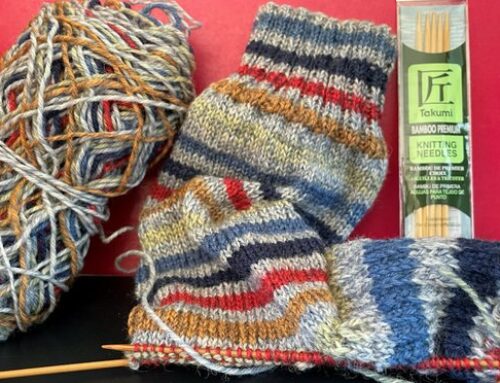As children, we learn every day how to do life, from the basics of how to eat, get dressed, tie our shoes to more complex educational and societal lessons. Children need the release of play, at intervals, as a break from all that learning. Play is generally recognized as an essential part of growing up and is built-in. Kids have recess, build forts, cultivate hobbies, and create unique worlds, characters, secret languages and societies.
Maturity is conventionally seen as a process that sheds the simple silly self, puts on a business suit and begins gravely shaking hands with the end of fun and games. Unfortunately, this can be a death march for the brain and soul according to Dr. Stuart Brown, co-author of “Play: How it Shapes the Brain, Opens the Imagination and Invigorates the Soul.” Citing examples from animal research, Brown writes that play is necessary: “the pervasiveness of play throughout nature argues that the activity must have some purpose after all. Animals don’t have much leeway for wasteful behaviors. Most live in demanding environments in which they have to compete to find food, compete with other species and compete to mate successfully. Why would they waste their time and energy in nonproductive activity like play?” He argues that sleep and play are “essential long-term organizers of brain development and adaptability.”
Maturity is conventionally seen as a process that sheds the simple silly self, puts on a business suit and begins gravely shaking hands with the end of fun and games. Unfortunately, this can be a death march for the brain and soul…
Brown defines play as a state of mind rather than an activity. Play is “an absorbing, apparently purposeless activity that provides enjoyment and a suspension of self-consciousness and sense of time. It is also self-motivation and makes you want to do it again.”
Television producer Shonda Rhimes describes in her book, “Year of Yes,” how she was decked out in a ball gown and running late for an event when her young daughter asked what would be a profoundly pivotal question: “Wanna play?” Teetering on high heels and indecision, Rhimes joined her daughter on the floor, choosing play over punctuality and writes: “When I arrive at the venue, 15 minutes late, the navy ball gown is hopelessly wrinkled and I’m carrying my heels in my hand. But, I don’t care—there’s a hot pearl of joy in my chest that is warming me in a way I’d forgotten was possible. This little fire inside of me that has been reignited. Like magic.”
Rhimes acknowledges the difficulty of making it a practice to say yes to play: “It’s a difficult challenge for a hard-working, straight-A, obsessive perfectionist to leap into a lifestyle practice that requires dropping everything to … play.” She has rules to create room for it. “Home by 6. No phones after 7. Try not to work weekends.” She writes, “The more I play, the happier I am at work. The happier I am at work, the more relaxed I become. The more relaxed I become, the happier I am at home.” She notes that her daughter loses interest after about 15 minutes, so the time commitment is far from overwhelming.
Actor Jonathan Chase, one of the series leads on Tyler Perry’s “Love Thy Neighbor” (OWN) allowed me to interview him via email about play in general, and in particular a brief Lego phase. He reflected on how he learned to manage down time in his early career: “In between filming seasons, I have a ton of time to think … It can be a terrifying sensation to not know what your next job will be. That’s how it went in my early 20s. Now, I embrace those moments when I can be still. Legos is just one of thousands of activities that can focus my energy and make me feel like I have accomplished something. That’s the wonderful thing about them. You start with nothing, just an instruction manual and tiny, multi-colored pieces. You finish with the last piece and you have this ‘thing’ that you made. It is a simple activity but my brain and heart get rewarded with that feeling of accomplishment. No matter how small the activity, achievement, fun and play have a spiralizing effect on the rest of your day.” He describes play as ” … basically that freedom you have as a child. I consider it that discovery zone when you follow your curiosity. And I try to live in that space as much as possible. It is where positive growth can occur.”
He says “you can’t spend your whole life focused on achievement” and warns that play is “not easily developed if you didn’t carry it through as an adult.” But, he says, “if you don’t know how to play, you have to force yourself to try it. There’s probably something in your childhood that triggered that delight.” He calls childhood the “easiest bridge” to help you get there.
For anyone who thinks that play is only for writers and performers, Chase says: “I believe that ‘sense of play’ can apply to any field of work. Doing your job, as technical as it can be sometimes, and adding that childlike curiosity. That opens up a world of opportunities to bring joy into your work.” His solution is surprisingly simple: “Be happy first. And I promise that you can manifest anything into your life. Start with a dose of play for five minutes a day. Whatever it is that brings you joy. Do that.”
Chris Pavlou, co-owner of Turning Point Gallery in Media, Pennsylvania, is an avid pinball player and game enthusiast. He says that play requires a willingness to look silly, echoing Dr. Brown’s “suspension of self-consciousness” element. He adds, “It’s not easy to maintain goofiness because you’re seen as … goofy” and there can be negative judgment when you’re 20 or 30 and acting silly. When Pavlou speaks, he easily and often breaks into a broad grin and his face lights up when the topic is pinball.
Pinball provides a magical alternative landscape to explore and discover. Pavlou says “there’s a little world in the pinball machine and you get wrapped up in it.” As an example, he showed me Cirqus Voltaire (Bally) where the player’s objective is to join the circus. The circus theme is carried throughout the game: highwire act, jugglers, acrobats, wild animal tamers, and a ringmaster with a large head, green skin and blue hair that rises up out of the play field to taunt the player. After a game, he asked what I was thinking about while I played and I was surprised to discover how everything evaporated as I focused on joining the circus.
Like Rhimes and Chase, Pavlou takes play breaks as an opportunity to unwind. He might play solitaire on his computer for a while and comes back to work feeling energized. “Now that I’ve given myself that reward, I can go back to being productive with an enhanced ability.” He says “you can’t spend your whole life focused on achievement” and warns that play is “not easily developed if you didn’t carry it through as an adult.” But, he says, “if you don’t know how to play, you have to force yourself to try it. There’s probably something in your childhood that triggered that delight.” He calls childhood the “easiest bridge” to help you get there.
Sometimes you need to walk away from problems in order to find solutions and this can be done by switching to a pleasurable activity. According to Elizabeth Gilbert in her book, “Big Magic,” Albert Einstein used a tactic called “combinatory play—the act of opening up one mental channel by dabbling in another. This is why he would often play the violin when he was having difficulty solving a mathematical puzzle; after a few hours of sonatas, he could usually find the answer he needed.”
There are lots of ways to tap into play as the world responds to our need to unplug, unwind and clear our minds. While I was working on this article, I received a mindfulness coloring book as a present from someone who had no idea I was researching the benefits of play. I am grateful to have attracted that into my life and am looking forward to more games, coloring, jigsaw puzzles, and pinball and being more productive to boot. Seems like a win-win to me. Wanna play?
Reprinted with permission from the July 27, 2016 edition of “The Legal Intelligencer” © 2016 ALM Media Properties, LLC. All rights reserved. Further duplication without permission is prohibited. For information, contact 877-257-3382, reprints@alm.com or visit www.almreprints.com.





